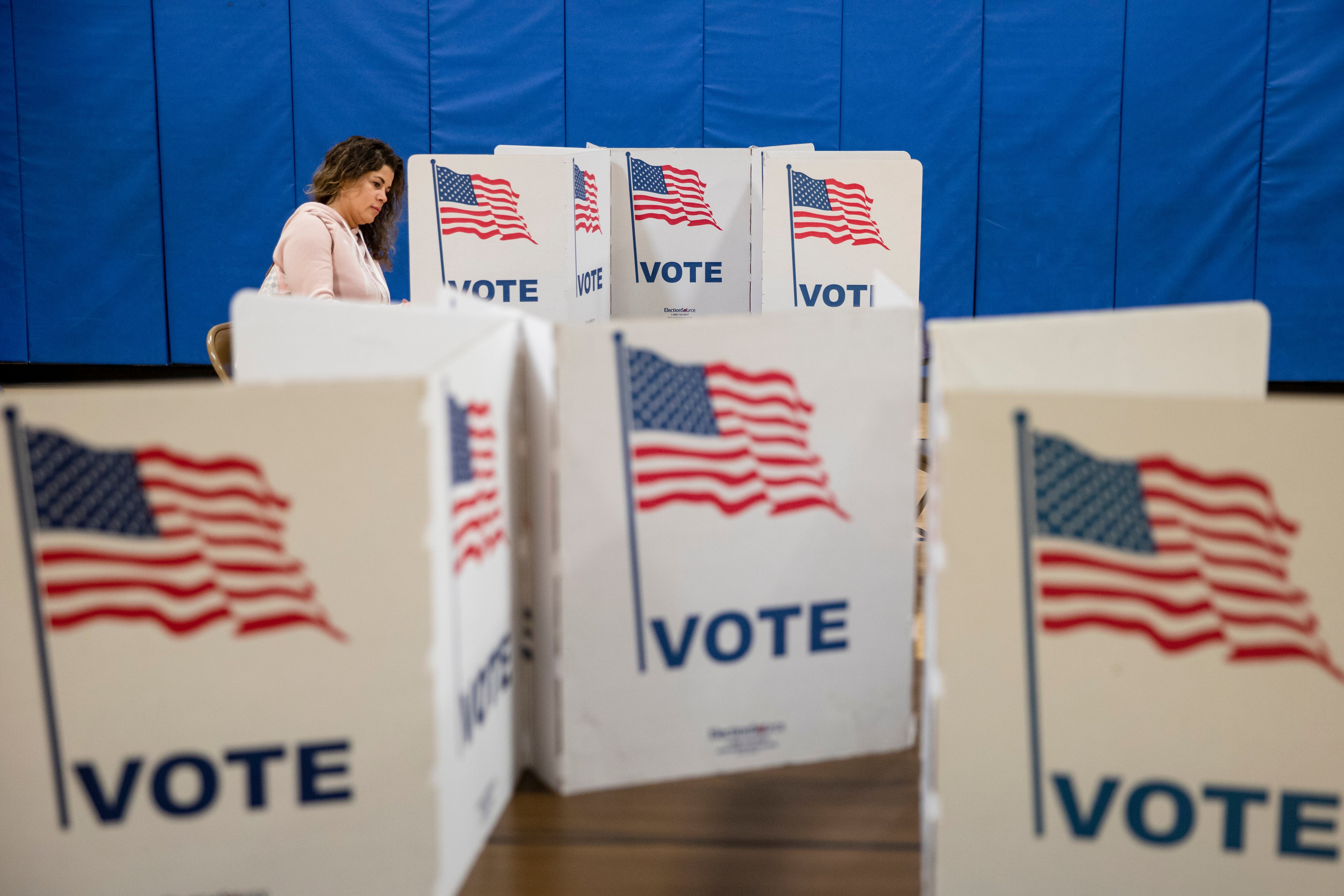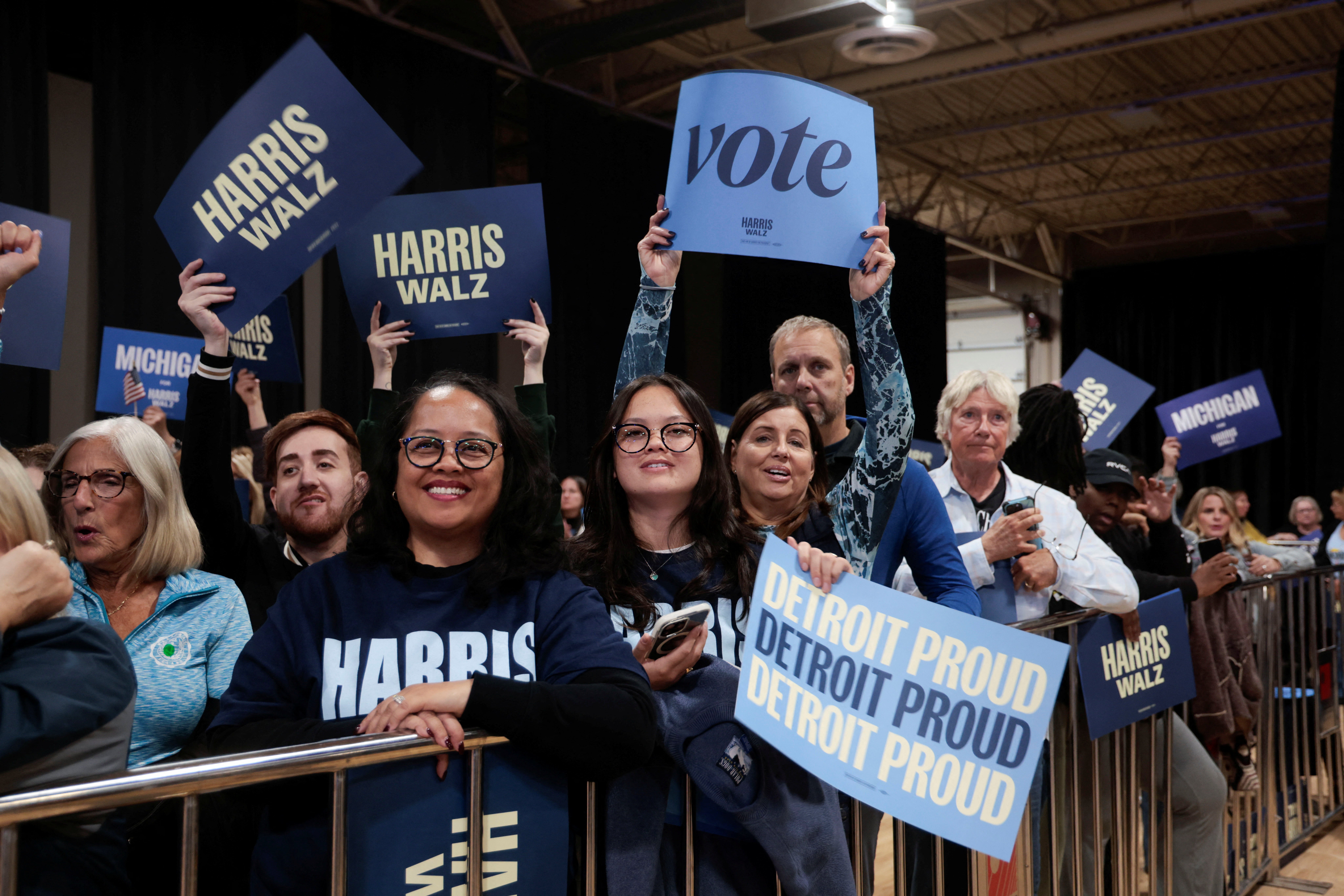I’m a Brit volunteer for the Democrats. Here’s why Trump’s stunt won’t work
After Donald Trump accused Keir Starmer’s Labour Party of interfering in the US election by sending over volunteers for the Harris/Walz campaign, Matthew McGregor, CEO of 38 degrees, reveals what it is really like to be a Brit on the ground where people are interested in whether he had ever met the Queen


For most people, the idea of a trip to the US might involve a visit to Vegas, Yosemite National Park, or something similar. Getting involved in volunteering for US political parties; using your annual leave – your own time and money – to fly to another country to work for an election campaign, isn’t necessarily seen as something fun. But, what can I say? Political activists march to our own drum.
American elections loom very large across party line and in many countries. Donald Trump’s move this week – filing a legal complaint against the Labour Party for meddling in his campaign – is Trump playbook 101: throwing out inflammatory accusations and sitting back while everyone scrambles to unpick it and react. It’s a playbook that works really well for him. It might be incredibly corrosive and toxic, but it sets off a media storm every time.
This is a political stunt from the Trump campaign. The people involved in this – Labour activists, although I’m sure there are also some from other political parties – are not breaking any rules. Neither are the Tory party activists reportedly campaigning in the US for Donald Trump. Still, it is an issue of interest for American politics; this “foreign interference” has been a really big topic ever since Putin and the Russian government tried to swing the 2016 election in Trump’s favour. So while it is just a political stunt for a purpose, I can see why they’re doing it. But the facts of the matter are still clear: that no one involved in any of this is doing anything wrong. If these Labour activists have anything to answer for, then Nigel Farage’s campaigning in the US should be raising much bigger questions.
The reality is that activists of all political parties, not just Labour, but political parties across the spectrum, particularly in Europe but around the world, have for decades gone and volunteered on these campaigns.
I’m aware this doesn’t make me cool in any way, but I’ve been following the US presidential elections since I was 11 years old. Now I have more of a vested interest: I have family in the States; I’m married to an American and we lived there for 10 years; I’ve since become a US citizen. But it was there long before that.
It’s fascinating being a Brit volunteering in the US during election campaigns – around 50 per cent of the time, I’d say “Have you decided who to vote for?” and give them a leaflet and that was that. They didn’t care or notice my accent. But then there were some who responded a little differently. They might say, “What the hell are you doing here? What’s it got to do with you?” There were quite a lot of jokes about the Revolutionary War. More often, as you might expect, were intrigued – they were curious as to why I’d come all this way to volunteer for American politics, rather than my own. Plus, a lot of Americans really like English culture. I was asked if I knew the Queen a lot.

For me, there were personal reasons, but for most people the answer to why we were there was because American politics is huge, and interesting, and we want to be a part of something like that. And because it matters to people around the entire world. This election, I think, is more consequential than ever before. We’ve got a guy, Trump, whose own former chief of staff said “fits the definition of a fascist”. The stakes are really high.
What Trump has done this week won’t affect the US presidential election. The only lasting impact of this discussion is the questions that it raises with Starmer’s relationship with Donald Trump if he were to win the election – but in all honesty, I don’t think it’s going to have a dramatic impact. Countries, especially ones like the US, make decisions based on fundamental interests and ideology, not on the basis of perceived slights.
Is Keir Stamer going to find a relationship with a Trump presidency harder than with a Harris presidency? Yes, definitely. This election is of huge consequence to Starmer. It is massively consequential. But that is true simply because of who Harris and Trump are, not because of a story about some activists going over from the UK to knock on doors in North Carolina.
As told to Zoë Beaty


Join our commenting forum
Join thought-provoking conversations, follow other Independent readers and see their replies
Comments